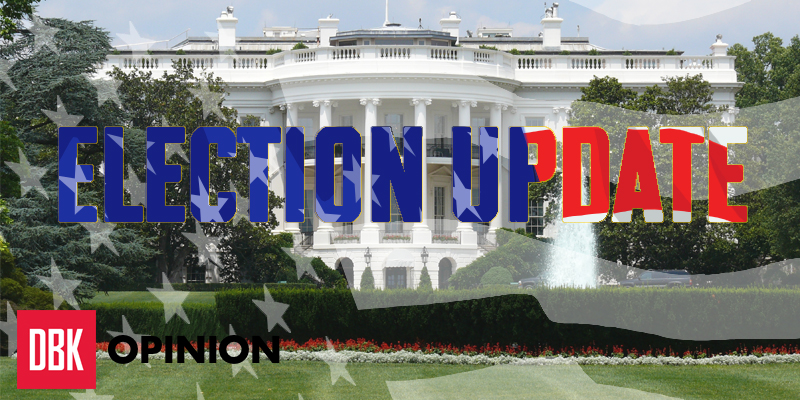In the New Hampshire primaries, Republican businessman Donald Trump and Democratic Sen. Bernie Sanders earned dramatic victories over their more established foes. More surprisingly for the Democrats, Sanders finished with a 22 percentage point lead over former Secretary of State Hillary Clinton. And of far more importance for the GOP, the second-place spot went to relative unknown Ohio Gov. John Kasich. But as significant as these results were, the death of Supreme Court Justice Antonin Scalia has dominated headlines, and, naturally, the presidential candidates’ statements.
What does Scalia’s death mean for the election?
The death of a U.S. Supreme Court justice is always significant, especially considering how rare it is for a justice to die in office. In this instance though, Scalia’s death is like dousing a fire with gasoline. The noted conservative jurist, appointed by President Ronald Reagan in 1986, will have to be replaced eventually. But considering President Barack Obama’s liberalism, the Senate’s conservatism and the number of presidential candidates who are senators, his replacement process will be far more complicated than Obama’s previous appointees’. If Obama gets his preferred nominee, the Supreme Court will favor liberals by a five-to-four majority. If Republicans block the appointment and win the presidential election, the court will remain in conservatives’ favor by the same margin.
Sens. Ted Cruz, Marco Rubio and Sanders will be forced to take a stance on any nominee – and even the nomination process itself. Republicans Cruz and Rubio said the next president should appoint the justice, but Sanders disagrees. The real question will be what each candidate does to stop, prolong or support a presidential nomination. Furthermore, the debates and town hall meetings will inevitably address what each candidate would look for in a future Supreme Court justice. With the justices aging significantly, the next president might be able to make two or more appointments. Be ready for an unbelievable amount of coverage of an undoubtedly contentious appointment process.
Last week’s winners and losers
Winner: John Kasich. While not even garnering 20 percent support in New Hampshire, Kasich stole the momentum on election night. With an emphasis on experience, compassion and economics, Kasich was able to surpass Marco Rubio and former Florida Gov. Jeb Bush on primary day. Kasich stayed positive in the South Carolina debate, and though South Carolinians have consistently preferred Trump and Cruz, a top-three finish would still be helpful for Kasich. He needs to win “establishment” backing in order to consolidate Bush’s, Rubio’s and the undecideds’ support.
Winner: Bernie Sanders’ fundraising. The Vermont senator not only won the Granite State, but he raised $6 million in the 24 hours following his victory, at a supposed average of $27 per donation. The Sanders campaign will have plenty enough funding to last into “Super Tuesday” on March 1. Will it be enough to upset Clinton? We’ll see.
Loser: Second-tier GOP candidates. The election came to an end for the remaining “pretenders,” or at least those who were still awake. Carly Fiorina, Chris Christie and Jim Gilmore exited the GOP field after disappointing (or nonexistent) finishes in the New Hampshire primaries. They join Mike Huckabee and Rick Santorum, victims of crushing Iowa defeats. Of the remaining six candidates, Ben Carson is the most likely to drop out. And if five remain, the Republicans might not have a clear nominee heading into the party’s July convention — which could plunge the party into renewed civil war.
Loser: Americans’ collective sanity. It’s only February. We have until at least November. It’s going to be a long year.
South Carolina & Nevada
South Carolina GOP Primary. Republicans vote on Feb. 20, and it appears Trump is the heavy favorite for his protectionist trade policies and harsh stance on immigration. Once again, the focus may turn to the battle for second place, with Cruz, Rubio, Bush and Kasich. A lot can happen in a week, but Trump looks to be in control with Cruz, Rubio and Kasich with moderate support. I’ll predict a Trump victory, with the other three each totaling between 15 and 20 percent support.
Nevada Democratic Caucus. Nevada was supposed to be a better state for Clinton’s electoral hopes, but recent polling says otherwise. Clinton and Sanders are tied in Nevada, according to a Washington Free Beacon survey. A Sanders win in Nevada might demonstrate his ability to win across the Democratic coalition, a statement Clinton cannot afford. I’ll predict a close Sanders victory, though, considering how some polling has erred toward Clinton so far. That plus Sanders’ momentum, campaign spending and decent debate performance might make him more attractive to voters worried about his electability. Regardless, it will be a close race.
All this being said, the story this week will certainly be the future of the Supreme Court.
Matt Dragonette, opinion editor, is a senior accounting and government and politics major. He can be reached at mdragonettedbk@gmail.com.



